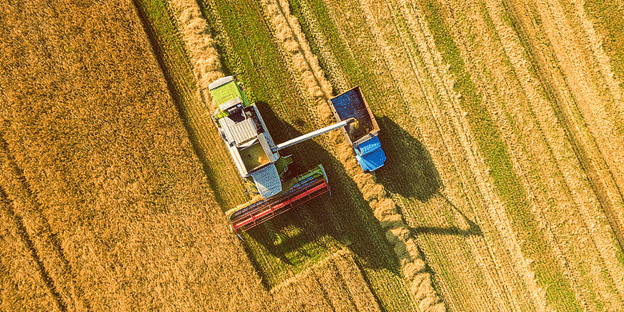As the agricultural sector seeks more sustainable practices, perennial wheat is gaining attention for its potential to enhance soil health and reduce environmental impact. Unlike annual crops, which require yearly planting and extensive chemical inputs, perennial wheat offers a promising alternative that could transform farming practices.
The Case for Perennial Wheat
Environmental Benefits
Recent studies by the Institute of Environmental Biotechnology at TU Graz have demonstrated that perennial wheat, specifically Kernza (Thinopyrum intermedium), provides substantial environmental benefits compared to annual wheat. Kernza’s ability to maintain a stable root system year-round reduces the need for frequent soil tillage and minimizes chemical inputs. This not only promotes a healthier soil microbiome but also leads to lower water and fertilizer requirements. Kernza’s deep-rooted system allows it to access nutrients and water more efficiently, improving soil structure and enhancing water retention, which is crucial for flood protection.
Comparative Studies
The research team compared Kernza to annual wheat across fields in France, Belgium, and Sweden during 2021 and 2022. Their findings revealed a significantly higher microbiome diversity in the roots of Kernza plants. This increased diversity is attributed to the stable root environment, which supports a richer microbial community. The reduced need for chemical inputs and soil disturbance also contributes to healthier soil and encourages the presence of beneficial organisms like earthworms and beetles.
Challenges and Limitations
Yield Considerations
Despite its environmental advantages, Kernza currently has lower yields compared to annual wheat, producing only about 20% of the yield of traditional wheat crops. However, Kernza’s breeding history spans just 20 years, and researchers anticipate that yield improvements could occur over the next 30 to 50 years. The impact of potential yield-focused breeding on the soil microbiome remains under investigation, with ongoing studies in China exploring perennial rice varieties.
Long-Term Viability
Another challenge is the decrease in yield from Kernza after the second or third year. To address this, experts suggest integrating perennial wheat into crop rotations, allowing the soil to recover from annual crop cycles and maintaining soil health. This strategy can help balance the benefits of perennial crops with the need for periodic crop rotation.
Regulatory and Market Developments
In the United States, Kernza has been approved for food production and is already used in a variety of products, including bread, cookies, and beer. In Europe, however, the approval process is still underway. Despite this, Kernza-based products are available, offering unique flavors and baking qualities similar to rye.
Perennial wheat, exemplified by Kernza, presents a sustainable option for modern agriculture, offering significant environmental benefits such as improved soil health, reduced chemical use, and better water conservation. While current yield levels are lower compared to annual crops, ongoing research and breeding efforts hold promise for future improvements. Integrating perennial wheat into crop rotations could enhance soil sustainability and contribute to a more resilient agricultural system.
Error





